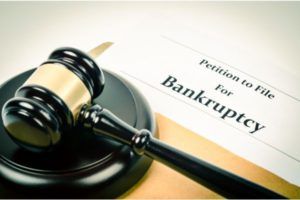Will Filing for Bankruptcy Harm My Credit?
 It is common to be concerned about your credit score when filing for bankruptcy. Some believe that filing for bankruptcy will destroy their credit score forever, which is not true. While bankruptcy may harm your credit score, the decreased score is not permanent. And declaring bankruptcy may not lower your credit score at all. In some bankruptcy cases, filing may actually improve the petitioner’s credit score because their credit was already suffering from high balances, poor payment histories, and past due accounts. Some filers will experience an improved credit score within a year or two after demonstrating a positive payment history on a new account or two.
It is common to be concerned about your credit score when filing for bankruptcy. Some believe that filing for bankruptcy will destroy their credit score forever, which is not true. While bankruptcy may harm your credit score, the decreased score is not permanent. And declaring bankruptcy may not lower your credit score at all. In some bankruptcy cases, filing may actually improve the petitioner’s credit score because their credit was already suffering from high balances, poor payment histories, and past due accounts. Some filers will experience an improved credit score within a year or two after demonstrating a positive payment history on a new account or two.
Consumer credit scores are created based on five different factors: payment history (35%), amounts owed (30%), length of credit history (15%), credit mix (10%), and new credit (10%). Payment history and debt together account for more than half of the information generating a consumer’s credit score. The amount a credit score falls after a petitioner files for bankruptcy depends in part on the state of their score when they filed. Filers with low credit scores may find that submitting their bankruptcy petition does not lower their credit score as much as it would if they had a high credit score. Regardless of how much change you see reflected in your credit score, the change is temporary. Filers can repair any damage done to their credit by filing bankruptcy.
Some bankruptcy petitioners may see their credit score improve after receiving a discharge of debt. Improved credit scores after bankruptcy are typically due to the change in the “amounts owed” portion of their report. Additionally, creditors cannot continue to report “late” payments on discharged accounts, which also positively affects the bankruptcy petitioner’s credit score. These comments are generalizations and your circumstances may vary your credit availability.
If you have questions about filing for bankruptcy, how bankruptcy affects your credit score or if you want to discuss you legal options in connection to the protections of bankruptcy , please get in touch with one of the experienced bankruptcy attorneys at Kenneth C. Rannick P.C., Tennessee, and Georgia bankruptcy attorney. We help good people through bad times.
The post Will Filing for Bankruptcy Harm My Credit? appeared first on Kenneth C. Rannick, P.C..











